第35章
Long ago you and I went over the ground under eminent names. . . . Were not we together when Socrates and Aspasia talked?" -- Id., pp. 151, 152.
Q.--Can you tell us, at least, whether spirit, as a whole or in its individual atoms, exists eternally?
"A.--Yes; spirit as a whole is eternal--exists--did exist -- by force of Powers you cannot understand. But you as individual, self-conscious, atomistic particles of spirit wholeness, are not eternal, and must return to the Primal Source."-- Id., p. 133.SPIRITS CANNOT BE IDENTIFIED Having now sufficiently examined the teaching of the spirits, a final question arises in regard to them, whether it is possible to identify them, and determine with any absolute certainty whether they are the spirits of the particular individuals they claim to be, or even spirits of the dead at all, or not. It should be distinctly borne in mind, always, that evil angels, whose existence has been proved from the Bible, whose nature and delight is to deceive, can walk the earth unseen, imitate and personate any individual, and reveal their characteristics of thought, writing, acts, form, and features, and make so perfect a counterfeit as to defy detection. How, then, can it be told what spirit it is, even though it shows the face and features of some well-known friend? On this topic, as on preceding questions, Spiritualists themselves may produce the evidence. President Mahman ("Discussion with Tiffany and Rhen," p. 13) remarks: -- "Certain experiments have been made, in order to determine whether spirits are present. Individuals go in as Page 122 inquirers, and get definite answers-- in the first place, from departed spirits of persons yet living; in the second place, from departed spirits of persons who never existed here or anywhere else; in the third place, from the departed spirits of brute beasts." When it is considered, as already noted, that spirits do their work through mesmeric power, it is easy to understand how the medium is made to believe that such and such a spirit is communicating when it is not so at all.
This question of identity came up in the very early stages of Spiritualism, and is no nearer settled, on their own confession, now than then. A Mr.
Hobart, in 1856, who claimed to be the first Spiritualist in Michigan, made the following admission: -- "The spirit sometimes assumes the name of an individual belonging to the same church, to induce them to hear. This is necessary with some who are so bigoted they would not believe unless a name was assumed which they respected." An article in the Spiritual Telegraph, of July 11, 1857, begins as follows: -- "The question is continually being asked, especially by novitiates in spiritual investigations, How shall we know that the spirits who communicate with us are really the ones whom they purport to be? . . . In giving the results of our own experience and observation upon this subject, we would premise that spirits unquestionably can, and often do, personate other spirits, and that, too, often with such perfection as, for the time being, to defy every effort to detect the deception. . . . If direct tests are demanded at all, we would recommend that they be asked for the purpose of proving that the manifesting influence is that of a spirit, rather than to prove what particular spirit is the agent of its production." Page 123 This is an entire begging of the whole matter in question; for it is not denied that it is a spirit; we want to know what particular spirit it is; but for that we must not ask; for it cannot be ascertained.
The same article states that other and lower spirits often crowd in and take the place of the spirit communicating, without the knowledge of the medium. We might also quote "Spiritualism as It Is," p. 14, that "not one per cent, of the manifestations have had a higher origin than the first and second spheres, which are filled with low, ignorant, deceptive, mischievous, selfish, egotistical spirits;" and "Dealings with the Dead," p. 225, that "the fact is, good spirits do not appear one tenth as often as imagined."Jan. 7, 1888, the following appeared in the Bamner of Light :
-- " Ques. -- What is the cause of our receiving inconsistent and untruthful communications? Does the blame, if any there is, rest with us or the controlling intelligence?
" Ans. -- There are spirits who delight in imposing upon mortals;they realize their power outside of material things, and that those who seek knowledge from them cannot see nor get hold of them; therefore to an extent they exercise a certain power over those mortals who approach;and if the mortals are themselves tricky by nature, insincere, ready to take advantage of others, whether it be at the time of sitting or in their daily life, rest assured they may be imposed upon by spirits from the other side who occupy a like plane of existence with themselves." Mediums themselves will not trust the spirits, according to statements made as late as 1896. Mrs. S. A. Underwood, medium, in "Automatic Writing,"p. 55, says: -- Page 124 "With all my experience in it, I would not to-day venture upon any change, business venture, friend ship, or line of conduct, advised from this source, unless my own common material sense endorsed it. Indeed, I would not take as fact any of its even reasonable advice without question, because it is not reliable as a guide in earthly affairs." Spirit communication, then, certainly does not amount to much as a heavenly instructor, a celestial guide to enlighten the ignorance of men. Whatever we know ourselves, we may rely upon; all else is uncertain. Again, on p.